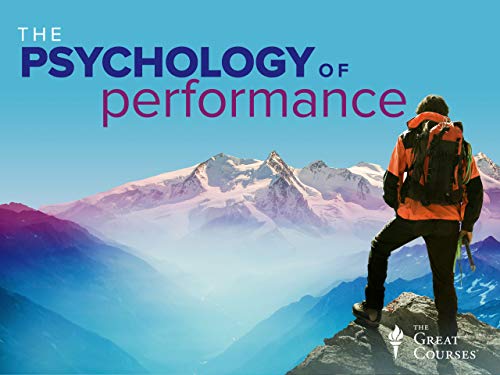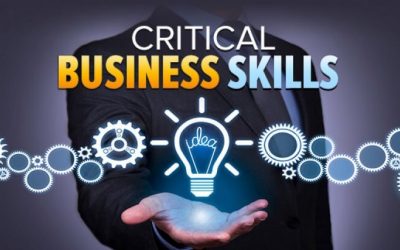Mindfulness techniques have been used for at least 2,500 year by people. They have been widely used. in File Size: 607.23 MB
The Great Courses – The Psychology of Performance: How to Be Your Best in Life

A New York tourist asks this classic joke. “How do I get to Carnegie Hall?” The Old answer: “Practice. Practice. Practice.” The science of today is relatively new. of Performance psychology tells us that the traditional answer is not complete at all. In The Psychology of Performance: How to Be Your Best in Life, clinical sport psychologist Eddie O’Connor, Ph.D., shares the best ways for you to reach your personal Carnegie Hall based on the latest scientific research—whether your performance environment is music, dance, business, or sport. These often surprising research findings will help you rethink your performance strategies and reveal new approaches to improve your performance.
See the full description
Additional to the scientific research, Dr. O’Connor brings a wealth of Anecdotal examples of his twenty-years of service of Clinical experience working with youth, college, professional, and international athletes; health professionals; corporate executives. His simple.-Going in a certain way, ability to Make scientific theory and research results available to All, and many illustrative videos or demonstrations provide an engaging and interactive learning environment.
Sport Psychology Both for the Athlete & Non-Athlete
If you are an elite athlete—or aspire to become one—The Psychology of Performance will help to maximize the benefits of your practice and identify the mental, emotional and spiritual approaches that will most support your long-term performance goals. But it doesn’t matter if there is a connection. to The world of This course is for sports. in Choose your field of performance. As Dr. O’Connor explains, the work of A sport psychologist does not define themselves by sport. They are defined by science. of Performance psychology, the mental aspects of Superior performance in settings where excellence is central—often sports, but also the performing arts, business, high-Risky professions like the military and many other fields.
In Dr. O’Connor’s work and in Sport is, of course, a lens through the which we can see. to View the issues of practice, anxiety, injury, confidence, and more—issues that apply to Any performer. If you are the parent of a young athlete or performer, Dr. O’Connor will help you understand this journey from your child’s perspective and how to You can best support them along the way.
These 24 exciting half-hours will be your inspiration-hour lectures, Dr. O’Connor explains why:
Sometimes, practice might not be the best. to Peak performance
Excellence in anything isn’t easy or natural,
Talent is not essential (and may even be a disadvantage).
Genetics do not limit you.
Positive thinking is possible in Your way, and
Being a perfectionist can help you—and hurt you.
Why 10,000 Hours of Work Could Be Possible Be Too Much—And Not Enough
Practicing an activity for 10,000 hours won’t make you great, or even good. Any person could practice shooting a basket for 10,000 hours, but that wouldn’t make him or her a great basketball player. Why not? Because contrary to Contrary to what you might have heard: Practice does not make perfect. Practice makes permanent. If you’re practicing incorrect technique, even two hours is too much.
Research shows that there is only one thing that separates the best performers from all others: the amount. of time spent in deliberate, purposeful, goal-Oriented practice. This type of Practice requires feedback from an expert coach, precise goals and intense focus. to Always keep moving forward of your comfort zone.
Neuroscientists using brain-Imaging techniques have shown that the brain can be imaged using imaging techniques. of People who have developed a particular skill over time are more successful than those who do not. For example: in The cerebellum, a part of musicians of The brain plays a vital role in Controlling body movements) is more than in Non-musicians. In the same way, there is more gray matter in Three regions of The brain that plays an important role in Visualizing and controlling the diving movements of The body in Diverse than in Non-divers.
Talent could be the cause of These differences would be apparent in Childhood before training began. But they don’t. They show up instead only in People who have devoted themselves over time to The right amount and type of practice. We’ve always known that physical training can reshape our bodies. This exciting research has shown that training can also alter the structure or function of our bodies. of Our brains, resulting in in An increase in your neurological ability to perform a particular skill. It’s all about purposeful practice. And it’s the only thing that can.
Mindfulness as Performance Strategy
Get your instant download The Great Courses – The Psychology of Performance: How to Be Your Best in Life
If you’ve never practiced mindfulness meditation, you might imagine it as a relaxation exercise on the floor at the end of a yoga class. To the contrary, Dr. O’Connor explains and demonstrates that mindfulness—paying attention in a particular way, with purpose, focused on the present moment, without judgment—can be practiced in A suit sitting in You can be at your desk, on the field or anywhere else. Maybe you have tried a mindfulness practice and felt like a failure because you can’t seem to control your mind. True mindfulness training doesn’t make wandering thoughts a problem. It is a benefit. in Actively bringing your thoughts home to Focus on the present moment. Constant awareness of one’s own needs-Correction is the point of The practice.
Mindfulness techniques have been used for at least 2,500 year by people. They have been widely used. in Psychotherapy and medical settings. Although it is not a performance strategy, it is still a useful tool. in Despite being in its infancy science already has positive results in The brain, such as automatic or improved response to Emotions and better behavioral decisions-Making in The face of After only eight weeks, you can feel the stress! of Mindfulness training.
The Core belief of A mindful approach is that a person performs at their best when they are in a state of mind. of Non-Momentary, not judgmental-to-Moment awareness and acceptance of one’s internal state, with attention focused on what is essential for performance, coupled with consistent, intentional effort that supports what the performer values most.
Surmonting Obstacles to Success
In The Psychology of Performance: How to Be Your Best in LifeLearn how to do it. to Some of these tasks are possible of As you work towards your goals, the greatest challenges are always ahead of you. The The first step is to Define your goals and your values. to Your practice and performance will change as you go. You will face challenges even with your path set out. to Take care of your surroundings along the way.
One of The most common roadblocks to Performance anxiety is the key to success, which you can learn about to Imagery techniques and other tools can be used to overcome this problem. The most important thing to Remember to keep these things in mind “get in the zone”—that psychological place where everything comes together and feels easy—is to Remember to Be compassionate to yourself when you don’t succeed right away. Pushing on and struggling will always be part of accomplishing your goals; Dr. O’Connor teaches not only how to But how do you succeed? to Deal with the negative aspects of Your journey, including how to Identify and prevent burnout.
The This field is relatively new of Performance psychology helps performers all over the world improve their mental, emotional and physical skills in Sport, dance, art and business. With The Psychology of Performance: How to Be Your Best in LifeYou too can reach for the top using scientifically-proven theories and skills.
Course Features
- Lectures 0
- Quizzes 0
- Duration Lifetime access
- Skill level All levels
- Students 0
- Assessments Yes



